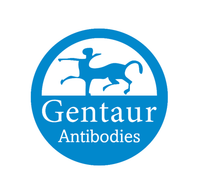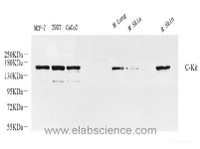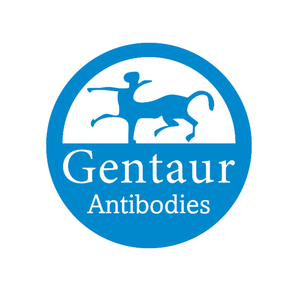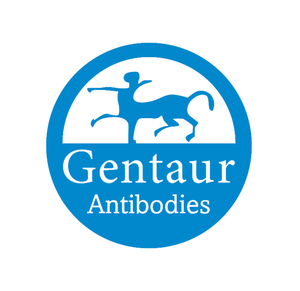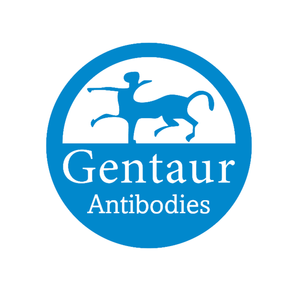c-Kit Polyclonal Antibody | G-AB-05469
Gentaur Antibodies
- SKU:
- G-AB-05469
- Availability:
- 3 to 5 Working Days
- Host:
- Rabbit
- Reactivity:
- Human, Mouse, Rat
c-Kit Polyclonal Antibody | G-AB-05469 | Gentaur Antibodies
Overview: This gene encodes the human homolog of the proto-oncogene c-kit. C-kit was first identified as the cellular homolog of the feline sarcoma viral oncogene v-kit. This protein is a type 3 transmembrane receptor for MGF (mast cell growth factor, also known as stem cell factor) . Mutations in this gene are associated with gastrointestinal stromal tumors, mast cell disease, acute myelogenous lukemia, and piebaldism. Multiple transcript variants encoding different isoforms have been found for this gene.
Category Type: Polyclonal Antibody
Research Areas: Cancer, Developmental Biology, Immunology, Neuroscience, Signal Transduction, Stem Cells, Tags & Cell Markers
Synonyms: C Kit, c-Kit, c-Kit Ligand, CD117, Kit, Kit Ligand, KIT oncogene, KIT proto oncogene receptor tyrosine kinase, KIT, Mast cell growth factor receptor, Mast/stem cell growth factor receptor Kit, MGF, p145 c-kit, PBT, Piebald trait protein, Proto oncogene c Kit, Proto oncogene tyrosine protein kinase Kit, Proto-oncogene c-Kit, SCF Receptor, SCFR, soluble KIT variant 1, Steel Factor Receptor, Stem cell factor receptor, tyrosine protein kinase Kit, Tyrosine-protein kinase Kit, v kit Hardy Zuckerman 4 feline sarcoma viral oncogene homolog, v kit Hardy Zuckerman 4 feline sarcoma viral oncogene like protein, v-kit Hardy-Zuckerman 4 feline sarcoma viral oncogene homolog
Reactivity: Human, Mouse, Rat
Host: Rabbit
Isotype: IgG
Gene ID:
Accession #:
Clonality: Polyclonal
Immunogen: Recombinant protein corresponding to Mouse c-Kit
Clone #:
Conjugation: Unconjugated
Swissprot: P10721, P05532
Santa Cruz:
Calculated MW: 110 kDa
Observed MW: 145 kDa
Concentration: 3 mg/mL
Buffer: PBS with 0.02% sodium azide, 1% BSA and 50% glycerol, pH7.4
Purification method: Affinity purification
Application: WB
Dilution: WB 1:500-1:2000
Storage: Store at -20°C. Avoid freeze / thaw cycles.

